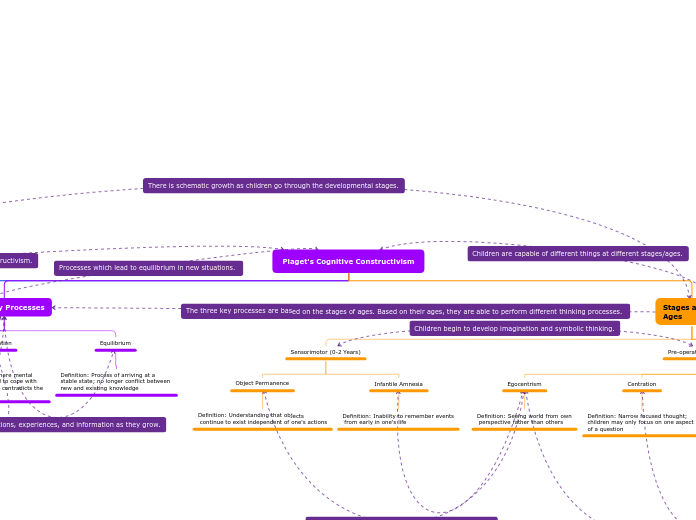przez Hannah Chan 4 lat temu
350
Piaget's Cognitive Constructivism

przez Hannah Chan 4 lat temu
350

Więcej takich
Conservation
Definition: Able to realize that two equal quantities are the same even if the appearance of one changes
Definition: An understanding of mental states such as feelings, desires, and beliefs and the causal role they play in human behaviour
False Belief
Definition: Realization that people can hold beliefs that are not true
Joint Attention and Lying
Definition: Ability to recognize that numbers/objects can be changed and return to original condition
Definition: Narrow focused thought; children may only focus on one aspect of a question
Definition: Seeing world from own perspective rather than others
Definition: Inability to remember events from early in one's life
Definition: Understanding that objects continue to exist independent of one's actions